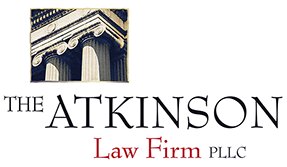Best Business Visa Lawyers in North Carolina
Share your needs with us, get contacted by law firms.
Free. Takes 2 min.
Or refine your search by selecting a city:
List of the best lawyers in North Carolina, United States
About Business Visa Law in North Carolina, United States
North Carolina is home to a thriving business environment that attracts entrepreneurs, investors, and professionals from around the globe. To work, invest, or manage business operations in North Carolina as a foreign national, you need to obtain the appropriate business visa. Common types of business visas include the B-1 (Business Visitor), E-2 (Treaty Investor), L-1 (Intracompany Transfer), H-1B (Specialty Occupation), and EB-5 (Immigrant Investor) visas. Each type has specific requirements and application processes, many of which involve both federal immigration law and state business regulations. Understanding these laws is essential for foreign nationals seeking to legally enter and conduct business activities in North Carolina.
Why You May Need a Lawyer
Navigating the U.S. immigration system, particularly for business purposes, can be complicated. Legal help may be necessary if you:
- Are unsure which visa type best suits your business goals
- Need help gathering and submitting complex documentation
- Face difficulties or delays in visa processing
- Plan to invest a significant amount of capital in a business enterprise
- Wish to transfer employees from a foreign office to a North Carolina location
- Have experienced a denial of a previous visa application
- Need guidance on maintaining visa status or compliance with state business regulations
- Have questions about transitioning from a temporary visa to permanent residency
An experienced immigration attorney can help you navigate the complexities of the application process, avoid costly mistakes, and maximize your chances of approval.
Local Laws Overview
Business visa law in North Carolina is primarily governed by federal immigration laws, regulations, and policies, but applicants must also be mindful of the state’s legal requirements for operating a business. Important aspects include:
- Business Registration: To operate legally, foreign nationals must register their business with the North Carolina Secretary of State. Additional permits or licenses may be required based on your business type and location.
- Tax Compliance: North Carolina businesses are subject to both federal and state tax laws. Visa holders must ensure they meet all tax filing requirements.
- Employment Law: If hiring employees or transferring staff, adherence to both federal and state employment laws is necessary.
- Investment Requirements: Certain visas like E-2 and EB-5 require a significant capital investment, and you must show that the business will contribute to the state’s economy.
- Licensing and Zoning: Local business activities are also subject to municipal zoning laws and state licensing boards.
Working with a local North Carolina attorney helps ensure your business remains compliant with both state and federal laws.
Frequently Asked Questions
What are the main types of business visas available for North Carolina?
The most common business visas include the B-1 (Business Visitor), E-2 (Treaty Investor), L-1 (Intracompany Transfer), H-1B (Specialty Occupation), and EB-5 (Immigrant Investor) visas.
Can I start a business in North Carolina with a B-1 visa?
The B-1 visa allows for certain business activities like meetings and negotiations but does not permit active management or running of a business. Other visas, such as E-2 or L-1, are more suited for active business operation.
How much do I need to invest to qualify for an E-2 visa?
There is no fixed minimum amount, but the investment must be substantial, generally at least one hundred thousand dollars or more, and sufficient to ensure the successful operation of the business.
Is North Carolina considered a favorable state for EB-5 investments?
Yes, North Carolina offers many opportunities for EB-5 investors, especially in targeted employment areas where the required investment threshold may be lower.
Can I bring my family with me on a business visa?
Most business visa holders can bring their spouses and children under 21 as dependents. The specific terms depend on the visa type.
How long does the business visa application process take?
Processing times vary widely based on visa type, applicant background, and consular workload, but can range from several weeks to over a year.
What happens if my business visa is denied?
You may reapply or appeal, but it is crucial to understand the reasons for denial and address them, ideally with the help of a qualified immigration attorney.
Does North Carolina have any special programs for international entrepreneurs?
While there are no state-specific visas, North Carolina offers various business development programs and incentives to encourage investment and entrepreneurship.
Am I allowed to work for another employer in North Carolina while on a business visa?
Most business visas restrict employment to the sponsoring employer or your own business. Unauthorized employment can jeopardize your status.
Can I change my visa status while in North Carolina?
In many cases, it is possible to apply for a change of status to another visa type without leaving the United States. Consult an attorney to determine the best approach for your situation.
Additional Resources
If you need more information or assistance regarding Business Visas in North Carolina, the following resources can help:
- U.S. Citizenship and Immigration Services (USCIS) - The main federal agency for immigration and visa matters.
- North Carolina Secretary of State - For business registration, filings, and state-specific requirements.
- North Carolina Department of Commerce - Offers guidance and incentives for business development.
- Local Bar Associations - Provide lawyer referrals and legal resources.
- U.S. Small Business Administration (SBA) - Offers support for new business owners, including foreign entrepreneurs.
- American Immigration Lawyers Association (AILA) - Lists member attorneys experienced in business immigration law.
Next Steps
If you are considering applying for a business visa in North Carolina or are already facing challenges related to your current visa status, reach out to a qualified attorney specializing in immigration and business law. Prepare all relevant documentation, including business plans, investment records, and personal identification. An initial consultation can help you understand your options and the best strategy for your individual goals. Prompt legal guidance ensures your application is accurate, timely, and compliant with all legal requirements, increasing your chances of a successful outcome.
Lawzana helps you find the best lawyers and law firms in North Carolina through a curated and pre-screened list of qualified legal professionals. Our platform offers rankings and detailed profiles of attorneys and law firms, allowing you to compare based on practice areas, including Business Visa, experience, and client feedback.
Each profile includes a description of the firm's areas of practice, client reviews, team members and partners, year of establishment, spoken languages, office locations, contact information, social media presence, and any published articles or resources. Most firms on our platform speak English and are experienced in both local and international legal matters.
Get a quote from top-rated law firms in North Carolina, United States — quickly, securely, and without unnecessary hassle.
Disclaimer:
The information provided on this page is for general informational purposes only and does not constitute legal advice. While we strive to ensure the accuracy and relevance of the content, legal information may change over time, and interpretations of the law can vary. You should always consult with a qualified legal professional for advice specific to your situation.
We disclaim all liability for actions taken or not taken based on the content of this page. If you believe any information is incorrect or outdated, please contact us, and we will review and update it where appropriate.
Browse business visa law firms by city in North Carolina
Refine your search by selecting a city.









